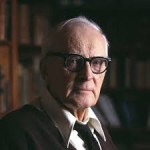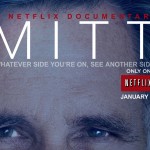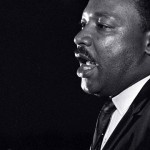I have rediscovered my faith in Christ in recent years and come to terms with my Mormonism. My quest seems to be one of finding where it is that I fit within Mormonism.
I am not talking about political liberalism. While political liberalism is my primary area of academic interest, this is not a post about the tired and boring question of "Can a Mormon be a Democrat?" Instead, I am thinking of liberalism in a religious sense.
I often hear (or see) references to True Blue Mormons (TBM). This might also stand for a True Believing Mormon. A TBM is somebody who fully accepts the LDS narrative about church history and the scriptures. I do not know what this fully means, but it is usually used in a negative sense by those who either do not consider themselves to be a TBM or no longer consider themselves to be a TBM. In a sense, the TBM is usually used as a straw man.
I am not a typical True Blue Mormon, but I am hesitant to not be categorized as one.
In many ways, I consider myself to be a liberal TBM…or am I a True Blue Mormon Liberal. I think I like True Blue Mormon Liberal (TBML). Now this will drive those who hate labels absolutely nuts, but I think categories can be useful. I think that is part of the social scientist in me.
My labels do not define me. There is a reason that I am constantly making up new labels for myself.
Some might not like the use of the term "liberal" since it largely has a political connotation. I am indeed a liberal in the political sense. However, "liberal" is also a term with significant theological meaning. Since Mormons have largely avoided the larger theological discussions of larger Christianity, it is not a term that is often used in a theological way by Mormons. However, Harold B. Lee in at least one instance used the term in a theological way. (Note: he did not do so kindly.)
Let me share what makes me a TBML:
Religious Liberalism
I am religious person. I am not always a good example of a religious person, but faith and spirituality are important to my life. I also appreciate that others value faith and spirituality…even if they experience faith in ways differently than I do. Now, one thing that makes me a religious liberal is that I do not think that any one religious experience is the one correct religious experience. However, this religious liberalism still allows me to appreciate and respect those with more traditional or orthodox approaches to my religion and other religions. I would hope that they would offer me the same respect, but I do not view such mutual respect as a pre-requisite for my respect for them. Respecting others is a duty, though a duty I struggle with.
I, also, have a respect for the secular. All things of beauty, good, and virtue should be appreciated. For me, Kant and Beethoven are secular spiritual.
Scripture
I love and value the scriptures. My views of the scriptures are rather unorthodox, but they are my own and I do not expect anyone else to view the scriptures as I do. Can a Mormon view the scriptures in a way different from Sunday School manuals and CES texts? Well, I am a Mormon…and I do.
I love the Book of Mormon. The writings of Jacob (Jacob 2) and the speech of King Benjamin (Mosiah 1-5) are amongst my favorite ancient accounts of moral life and moral society. I learned an appreciation and love of the gospel of Jesus while studying the Book of Mormon. I recognize that others may come to Christ by other means, but the Book of Mormon is central to my Mormon identity and Christian faith.
Joseph Smith
I think that my view of Joseph Smith sets me apart from both the traditionalists and the DAMU (disaffected Mormon underground). I think that Joseph Smith was a prophet…a prophet of God. He was the driving force behind the bringing forth of the Book of Mormon (I will address the Book of Mormon more below). He founded one of the great religious movements of the 19th Century, one which extended into the 20th and 21st.
I am not sure if I would have gotten along with Joseph Smith if I had lived in his day. Like Brigham Young, he seemed to be a rather controlling figure. I would likely have been more comfortable with Oliver Cowdery.
But I think we often mistake the role of prophet with that of Messiah. The narrative which castes Joseph as an all-around wonderful guy is nothing short of cheesy. It is also a flimsy narrative which easily crumbles. However, if we look at Old Testament prophets little seems to point to them as perfect, or even pleasant, personalities.
I recognize that church history is not as rosey as it seemed in seminary. However, American history is not what it seemed like in high school, either. With further study, I have discovered greater detail and nuance. Yet, much like my study of Jefferson and Lincoln, I appreciate knowing better the human side of Joseph Smith. It may not be the Joseph Smith that I sometimes hear about in church or a visitor centers. But I also recognize that Abraham Lincoln might not be as awesome as I portrayed him in my American Heritage lectures (though he was awesome). We all do this at times when talking about those we love and those who are our heroes. Nothing wrong with having heroes, but we should recognize that our hero-worship does not make good history…and it makes for really bad metaphysics.
Peace and Justice
One thing that classifies me as a religious liberal is my focus on peace and social justice. The well-being of actual human beings matters more to me than the afterlife. I believe that there is an afterlife, but I think that the here and now is of equal significance and it is of more immediate concern.
The TBML tradition is a long one. It includes the likes of Lowell Bennion and Eugene England. It includes others, I am sure, but I think that Bennion and England are particularly illustrative of the tradition that I am thinking of…and the movement that I envision. Richard Bushman and Dialogue under the editorship of Kristine Haglund are also examples.
While I hope for a broad acceptance of many approaches to Mormonism within the Church, Mormon liberalism must also tolerate, if not love and accept, those with more traditional (or maybe institutional) views and beliefs. Likewise, I have had to develop a greater tolerance.
Eugene England and Lowell Bennion were both minority voices. Both found themselves at the wrong side of the LDS Church Education System. Both men vocally opposed exclusion of blacks form the Mormon priesthood. Yet, both still loved Mormonism and The Church of Jesus Christ of Latter-day Saints. This is not to say that this is not difficult, if not downright painful, at times.
They didn’t start a website about staying LDS. Instead, they actually stayed. Not to prove a political point, but because they loved the Church. They even thought it was true and not because they thought the Church or the hierarchy were perfect. Bennion and England had their own unique reasons for why they thought the Church was true. I admit, the idea of a true institution is…well…strange. Maybe there are some better theological parsing of this idea of a "true" church that needs to be done. But when a True Blue Mormon Liberal says that the Church is true they are expressing a sense of loyalty to the culture and Church which played an integral part in shaping who they are. For me, not being Mormon is as foreign to me as it was for Socrates, as he contends in Plato’s Crito, to consider the possibility of not being Athenian.
Now, Bennion and England, like Hugh Nibley, were willing to challenge Mormon culture. But, they did so out of love. Afterall, it is the gospel of repentance.
We have some great examples of True Blue Mormon Liberals in recent Mormon history. The question that remains is this: "Did Mormon Liberalism die with Bennion and England?" Oh, it sure feels like it sometimes. Much of what passes as Mormon liberalism in the forms of Sunstone Symposiums, Mormon Stories, and the bloggernacle (as well as their Facebook extentions) are little more than Nietzschean cynicism. They are critical, negative, and (I admit) sometimes insightful. Yet, they suffer from much of the similar troubles that face Mormon culture in general, in that they are very cliquish and dominated by insiders.
I think that By Common Consent, Dialogue, and Richard Bushman are signs that liberal Mormonism may still have a pulse.
The new directions within the Neal A. Maxwell Institute are promising developments. This is not because the Maxwell Institute is in any way a Mormon liberal institution, instead it seems to be a sign that liberal Mormon thinking is welcome within the fold rather than being something that should be purged.
A key to surviving as a True Blue Mormon Liberal is to recognize that there may be a large segment of reactionary apologists (religiously) and/or Skousenites (politically) within Mormonism, but to also recognize that they do not define Mormonism…no matter how hard they try to dominate that discussion.
Do not let them make you bitter! Again, this can be very difficult. Trust me…I know how hard it can be. The only way in which the reactionaries can define Mormonism is to let them.












